MercoPress. South Atlantic News Agency
Environment
-
Wednesday, September 30th 2020 - 09:44 UTC
Chile drops out from regional agreement to deliver access of information in environmental matters
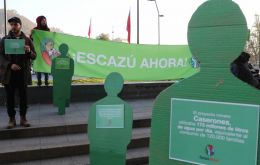
Chile said last week it would not sign the Escazu Agreement -- a decision that generated surprise and disappointment among environmentalists because along with Costa Rica, Santiago has promoted it since 2012.
-
Wednesday, September 30th 2020 - 09:12 UTC
Brazilian court blocks Bolsonaro attempt to repeal regulations protecting mangroves and coastal ecosystems
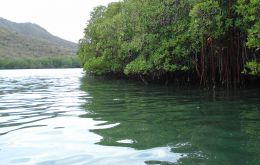
Brazilian court blocked President Jair Bolsonaro's government on Tuesday from repealing regulations protecting mangroves and other fragile coastal ecosystems, after an outcry from environmentalists.
-
Tuesday, September 29th 2020 - 09:55 UTC
Brazilian farmers' lobbies divided over EU complaints of Amazon deforestation

Brazil's biggest lobby group for soy farmers Aprosoja has broken ties with the Brazil Agribusiness Association (Abag) over its support for an initiative calling on the Brazilian government to rein in soaring deforestation in the Amazon rainforest.
-
Tuesday, September 29th 2020 - 08:39 UTC
California wildfires rage renowned vineyards in Napa and Sonoma counties

A wind-driven wildfire raged for a second day through Northern California wine country on Monday, burning homes, forcing thousands of residents to flee, and threatening some of the world-renowned vineyards of Napa and Sonoma counties.
-
Monday, September 28th 2020 - 09:03 UTC
Amazon forest Chief blasts Bolsonaro for blaming wildfire on tribes: “that is a lie”
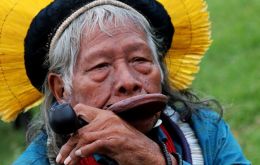
Chief Raoni Metuktire, one of the most iconic defenders of the Amazon, condemned Brazilian President Jair Bolsonaro for blaming wildfires devastating the rainforest on indigenous people.
-
Friday, September 25th 2020 - 08:36 UTC
Grim experience for Australian authorities, euthanizing and disposing of some 400 whale carcasses

Australian officials were focusing on the grim task of disposing of almost 400 whale carcasses on Thursday, while attempts to rescue the few remaining survivors of one of the world’s worst mass strandings were expected to extend another day.
-
Wednesday, September 23rd 2020 - 08:54 UTC
EU/Mercosur trade deal ratification delay: Brazil accuses France of “protectionist interests”

Brazil hit back Tuesday at European reluctance to finalize a trade deal between the EU and Mercosur blocs over concerns about Amazon deforestation, saying a French report on the issue was motivated by “protectionist interests.”
-
Tuesday, September 22nd 2020 - 08:22 UTC
A third of some 270 pilot whales stranded on Tasmania sandbar have died
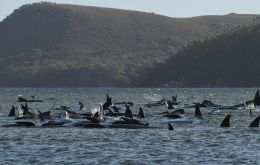
Rescuers were trying to refloat hundreds of whales stranded on a sandbar off the remote west coast of the Australian island of Tasmania on Tuesday, hoping to end one of the country’s worst beaching events.
-
Monday, September 21st 2020 - 08:27 UTC
Group of world's largest corporations call to support nature and fight climate change
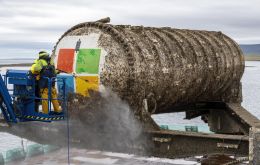
Some of the world's biggest companies on Monday backed growing calls for governments to do more to reverse the accelerating destruction of the natural world and support broader efforts to fight climate change.
-
Thursday, September 17th 2020 - 09:10 UTC
Eight EU countries urge “real action” from Brazil to combat deforestation

A group of eight European countries urged Brazil to take “real action” to combat rising deforestation in the Amazon rainforest, which is threatening Europe’s desire to source food and other products sustainably.
